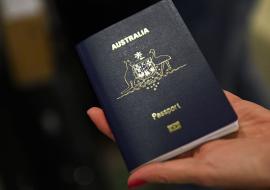Europe’s Travel Industry Likely to Endure €400 Billion in Losses

All across Europe, empty airports, abandoned hotels, deserted squares and lonely monuments illustrate how the coronavirus outbreak has led to the worst crisis in history for the travel and tourism industry, not only in Europe but also worldwide.
Estimates have it that somewhere in the neighborhood of €275 to €400 billion will be lost for the tourism and travel sector because of this global pandemic, according to the commissioner of the internal market, Thierry Breton.
Over half of the European Union’s businesses in the tourism sector are located in Italy, Spain, France and Germany – followed by Greece, Portugal and Poland.
And tourism is an essential player in the European Union’s economy. In 2018, the sector directly contributed 3.9 percent to EU GDP and accounted for 5.1 percent of the total labour force – about 11.9 million jobs.
EU leaders will meet once again in a special online summit to discuss how to mitigate the economic impact of the coronavirus pandemic. The EU will need “massive funds” for the recovery, said commissioner Breton, who claimed that tourism should stand first in line.
Additionally, Breton claimed that there is an opportunity to take advantage of the current crisis to reinvent “the tourism of tomorrow – towards a more sustainable, resilient and innovative sector”.
A special summit could be organised in September or October to deal with the future of the sector, Breton added.
Meanwhile, there is still very little official information – but lots of speculation – on how the summer holidays will look in Europe – especially since the coronavirus might surge back when measures are eased, as it is now happening in some Asian countries.
In Belgium, local authorities along the coast are calling on the federal government to implement some guidelines, after one municipality proposed last week regulating access to the beach with special passes.
Similarly, Portuguese prime minister Antonio Costa said last week that beach restrictions will be put in place to avoid overcrowded spaces.
Austria, meanwhile, wants to have bilateral agreements with countries such as Germany to allow tourists to enter the country during the summer. But Spain has said the country will not resume tourist activity until “it is extraordinarily safe”.














